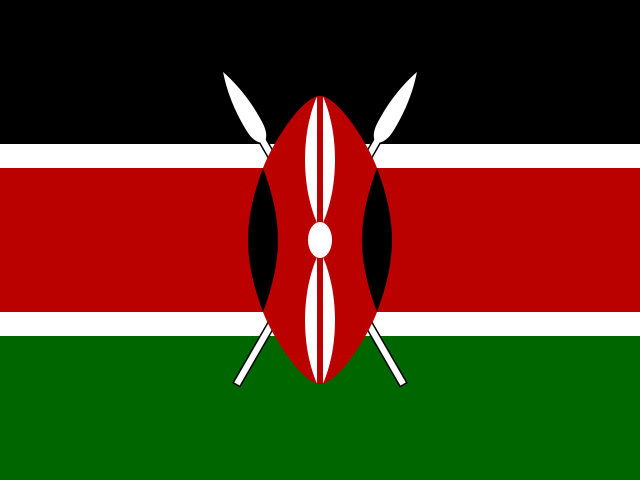
Kenya
Kenyan media are considered to be independent by regional standards, but press freedom remains fragile. Last year’s presidential elections also highlighted the challenge from widespread political misinformation and disinformation through multiple social networks and messaging apps, despite laws designed to limit its spread.
The country’s fragile and polarised political environment and the tensions that follow presidential elections often determine the perceived credibility and reliability of the media. Yet, trust in the news grew by 6 percentage points this year, perhaps because it acts as an important counter to a rising tide of misinformation and disinformation. The growing appropriation of WhatsApp and Facebook as information-sharing platforms has raised serious concerns about the quality of information during a year dominated by elections and the subsequent challenge of the presidential outcome. Increased efforts by fact-checkers such as AfricaCheck, Fumbua Trust, PesaCheck, and others to spotlight the misinformation on WhatsApp and Facebook may also help explain why their use as a source of news declined.
The election period coincided with rapid growth in the use of TikTok for news, up 14 percentage points in the last year, according our survey. The platform – usually known for sharing dancing and makeup videos – became the network of choice for political mercenaries during the elections according to a report by the non-profit Mozilla foundation.1 Fake polls and videos were widely shared and the platform was widely criticised for lack of effective content moderation, allowing millions of people to engage with content that was intentionally misleading or even incited violence.
Although guaranteed by the constitution, respect for press freedom and free expression in Kenya are constrained by political and economic realities. The current political administration that came to power after the 2022 elections regularly claims that the media are biased against them. Physical attacks on journalists and the increase in online threats, harassment, and intimidation have had a chilling effect. Media houses are also under pressure, with the Communications Authority of Kenya, which is in charge of licensing and regulating broadcast media, threatening to revoke the licences of media outlets that report on anti-government protests organised by the opposition. These threats alongside non-payment of money (an estimated US$17m are owed for advertising services already rendered) have often led to the once robust media kowtowing to government and political-elite pressure.
For most Kenyans, free-to-air digital terrestrial TV remains the most popular medium – with radio also reaching a significant proportion of the population via more than 100 licensed stations in multiple languages. Media ownership is concentrated among the political elite, reinforcing the perception that the media are ‘captured’ by political and corporate interests to the detriment of their public interest role. A small number of large groups including the Nation Media Group, The Standard Group, Radio Africa Group (Star+), and the Royal Media Services Group (Citizen TV, Citizen Radio, etc.), dominate the landscape. In the online space, the digital native Tuko’s mix of celebrity, entertainment, and political news with a light touch has proved successful.
But there are deepening concerns for the sustainability of the sector as media organisations contend with a poor economic environment and the aftermath of the COVID-19 pandemic. Layoffs continue and the welfare of the journalists remaining in the newsroom has worsened as the working conditions deteriorate and salaries are delayed. A number of news organisations have shuttered loss-making products. For example, the Radio Africa Group closed its entertainment-only TV station Kiss TV.
Some media houses' attempts to develop alternative revenue streams have run into trouble. The Nation Media Group dismantled its paywall when it had an estimated 70,000 subscribers which had earned the company more than US$ 470,000. The subscription numbers for The Standard and The Star, which still have their paywalls, are way below those of the NMG. Media organisations seem to be in paralysis – afraid to suspend paywalls which are not gaining traction or afraid to reintroduce them without making the significant investment needed to produce distinct and valuable content that would justify charging for content. The declining financial health of many media houses has prompted discussions about establishing a Media Fund to assist news organisations to stay afloat. But the prospect of using public money to support commercial, ‘independent’, yet recalcitrant media at a time of economic hardship for ordinary people would be extremely hard to deliver politically.
All the big Kenyan media groups have been investing in the production of original podcasts. Although they are often cheap to produce, there are few indications that they are attracting significant audiences. Furthermore, many podcasts are of a similar genre (lifestyle, entertainment, or sports) and most do not contain news or analysis and may not have contributed to improving the quality or diversity of political discourse.
Catherine Gicheru
ICFJ Fellow and Director, Africa Women Journalism Project
George Nyabuga
Associate Professor of Media and Journalism, Aga Khan University’s Graduate School of Media and Communications
Methodology note
These data are based on an online survey of mainly English-speaking, online news users in Kenya – a subset of a larger, more diverse, media market. Respondents were generally more affluent, younger (18–50 only), have higher levels of formal education, and are more likely to live in cities than the overall Kenyan population. Findings should not be taken to be nationally representative.
Trust in news overall
63%
2/46
Trust in news I use
69%
Trust in news overall (63%) remains high compared with other countries in our survey. Commercial TV outlets, such as from the biggest media companies, tend to be the most trusted news sources alongside the Daily Nation newspaper and its associated website. The BBC also has a strong presence in the Kenyan market with high trust scores. Popular papers such as The Star and The People Daily have slightly lower trust.

